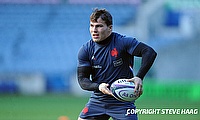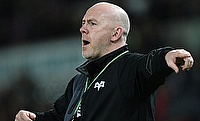French Rugby - a financial time bomb?
While the rise and rise of French club rugby due to the massive amounts of money being pumped into clubs across the country is nothing new, the recent influx of world class players to French shores has got the whole of the northern hemisphere talking; is it right, should British clubs follow suit, but perhaps most importantly, is it sustainable?
French rugby's big money history can be traced as far back as the 1920's when a rich factory owner in the small town of Quillan brought together a number of France internationals to take the minnows to three French finals, including lifting the championship in 1929. Soon after French rugby attracted further controversy for its spending habits when in 1932 France were thrown out of the Five Nations following accusations of professionalism.
So from constantly pushing the boundaries of the amateur sport that was rugby pre-1995, France have wasted no time in pushing the boundaries of the sport in its professional era. Although a salary cap of some form has been brought in recently, it still dwarfs those of the home nations and the number of international stars “ both rumoured and confirmed “ heading across to France next season suggests that clubs are finding ways around the loose sanctions in place.
There is no denying that in the here and now, the wealth of the French clubs is great for us, the fans. The strength of the teams on paper of a large number of Top 14 sides is enough to make Pro12 and Premiership teams quake in fear, and despite a drab final run that failed produce a single try in both semi-finals and the final between Toulouse and Toulon, the rugby on display is closer to the running rugby witnessed in the southern hemisphere than on British shores. But while for the likes of Toulouse “ who have enormous strength in depth even without their foreign stars “ success has long been a part of their history, their very essence, the teams lower down the table are throwing money at their squads “ in an attempt match the rise of big-spending Toulon “ to little avail.
Take Lyon, for example. Despite being all-but relegated to the second tier ProD2 with matches to spare, announced the signing of France legends Sebastian Chabal and Lionel Nallet, as well as Wales hooker Huw Bennett. And at the recent opening of the French transfer window, sports magazine L'equipe revealed a list of (not entirely reliable) transfers that resembled a Christmas wish-list of the directors of rugby clubs in the British Isles.
Build it and they will come appears to be the motto of most Top 14 sides at the moment. Club rugby is undoubtedly as popular as it has ever been in France, and with the relative dominance of the Six Nations over the past decade, as well as their appearance in last year's World Cup final, rugby as a spectator sport is on the up in France. While attendances in France's number one sport “ football “ are falling, all the numbers in rugby are rising, not just the salaries. Participation in amateur level rugby has doubled over the last ten years, and on several occasions in recent years, crowds of almost 80,000 have packed into the Stade de France to see league matches involving Parisian side Stade Français.
But the question is how long can owners around the country continue to invest huge amounts of money in search of glory? Increased attendance can only mean increased revenue, but to cover the astronomical wage costs of the myriad of stars currently at, or heading to France it will take a great deal more than filling seats on match day. In the short term it seems little will change, so long as owners and financiers such as Toulon's Mourad Boudjellal are willing to continue to spend for little financial reward. It remains to be seen how long this big-spending trend will continue, but it is fairly clear that it is not a sustainable system. A lot can be learned from football's English Premier League, one of the richest sporting leagues in the world, where over-spending in attempts to compete at the highest level has had crippling effects when a club has failed to achieve what was expected of them. Leeds United “ once a mainstay of the upper reaches of the Premier League are only now recovering from the disaster wrought from their frivolous spending of the early 2000's.
It may take something big to bring an end to French rugby's care-free spending. An agreement for a standardised budget across the top northern hemisphere leagues would be the most ideal, and fairest solution, but it seems unlikely that France of all nations would agree to any sort of universal cap, particularly given the old adage that money is power. Perhaps a significant slump in the quality of players to the national side would be cause for a rethink. Already a new programme “ the Joueurs Issus des Filières de Formation “ has been implemented ensuring that a greater amount of home-grown talent will make up future Top 14 squads, but in terms of limiting salaries it is likely to have little immediate effect. Finally, an all-too-real worst case scenario could be the collapse of a major club, potentially forcing an overhaul of how French club sides are regulated financially. We have seen it before in football, and with the amount of money sides like already relegated Lyon and on-field strugglers Bayonne are spending, it can't be long before the short term financial security is pulled from under their feet.
It seems fitting that the 2011-12 final was fought between Toulouse “ the biggest supplier of players to the current French squad “ and a Toulon side leading the way in creating a Quillan-esq team of mercenaries. This time least, the home-grown talent won out, but the time of the French rugby Galacticos is coming. For the time being players will continue to migrate to where the money is at, and for us fans and the many spectators that fill grounds across France, being treated to witnessing stars from across the rugby world competing with and against one another can only be a good thing, to be enjoyed while it lasts.








